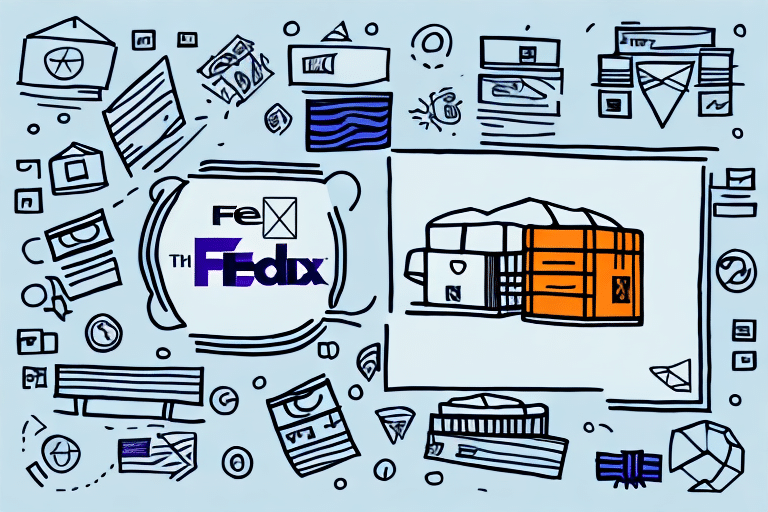Introduction to the FedEx Electronic Export Information (EEI) Fee
If you're involved in international trade, you've likely encountered the FedEx Electronic Export Information (EEI) fee. This fee covers the cost of filing electronic export information with the U.S. Census Bureau, a requirement for most shipments leaving the United States. Non-compliance can lead to significant penalties and shipment delays. In this article, we'll delve into the EEI fee, explaining its purpose, the filing process, and strategies to avoid common pitfalls.
Understanding the Fundamentals of Exporting
What is Exporting?
Exporting refers to the sale of goods or services to another country. This process involves adhering to various laws and regulations, including those related to customs, tariffs, and documentation.
Key Export Requirements
- Customs Compliance: Ensuring all goods meet the destination country's import regulations.
- Tariffs and Duties: Understanding applicable taxes and fees on exported goods.
- Documentation: Managing necessary paperwork, including invoices, packing lists, and export licenses.
The Role of Electronic Export Information (EEI)
The EEI is an electronic document submitted to the U.S. Census Bureau, detailing information about exported goods such as value, quantity, and destination. It aids the government in compiling trade statistics, monitoring exports of controlled items, and enforcing trade laws. According to the U.S. Census Bureau, accurate EEI filings are crucial for maintaining comprehensive trade data.
How the FedEx EEI Fee Works
Role of FedEx as a Third-Party Filer
FedEx assesses the EEI fee to cover the administrative costs of filing EEI on behalf of its customers. Acting as a third-party filer, FedEx submits necessary information to the Census Bureau, streamlining the export process for shippers.
Fee Structure and Payment
- Per Shipment Basis: Fees vary based on factors like the type of goods and destination country.
- Separate Invoicing: The EEI fee is billed separately from shipping charges.
- Payment Methods: Fees can be paid online, via phone, or by mail.
It's important to note that the EEI fee is separate from other carrier fees, such as fuel surcharges or customs brokerage fees.
The Importance and Impact of the EEI Fee
Compliance with Legal Requirements
Filing EEI is mandatory for all exports valued over $2,500 or those requiring an export license. Accurate EEI filings ensure compliance with U.S. export regulations, helping avoid legal issues and shipment delays.
Government Use of EEI Data
- Trade Statistics: Data from EEI filings helps the government understand trade flows.
- Export Controls: Monitoring controlled goods to enforce regulations.
- Economic Research: Analyzing export trends to inform policy decisions.
Consequences of Non-Compliance
Failure to file EEI correctly and timely can result in penalties ranging from $2,500 to $10,000 per violation, as imposed by the U.S. Department of Commerce. In severe cases, penalties may escalate to criminal charges or forfeiture of goods.
Compliance and Penalties for EEI Filing
Determining EEI Filing Requirements
Not all shipments require EEI filing. Generally, shipments valued at $2,500 or more, or those containing goods that need an export license, must file EEI. Additionally, certain destinations may impose EEI requirements regardless of shipment value.
- Value Threshold: Exports exceeding $2,500.
- Export Licenses: Goods requiring specific licenses.
- Destination Regulations: Certain countries may have additional requirements.
For detailed guidelines, refer to the Export Administration Regulations (EAR).
Penalties for Incorrect or Late Filings
- Financial Penalties: Up to $10,000 per violation.
- Shipment Delays: Incomplete or delayed filings can halt shipment processing.
- Legal Consequences: Potential criminal charges or asset forfeiture.
Ensuring accurate and timely EEI filings is essential to avoid these severe repercussions.
Tips to Optimize EEI Filing Costs
Utilize Professional Services
Working with a customs broker or freight forwarder can streamline the EEI filing process. These professionals can negotiate better rates with carriers and ensure compliance with all regulations, potentially reducing overall costs.
Leverage FedEx's Electronic Trade Documents (ETD) System
The FedEx ETD system allows shippers to submit documentation electronically, minimizing paperwork and expediting the filing process. This efficiency can lead to reduced EEI filing fees.
Ensure Accurate Shipment Information
Providing precise details about your shipment, including correct classification, country of origin, and accurate valuation, can prevent costly errors and delays in the EEI filing process.
Explore Exemptions and Exceptions
Certain shipments may qualify for exemptions based on value or destination. Understanding these rules can help you determine if your shipment is eligible, potentially lowering or eliminating EEI filing costs.
The Future of the FedEx EEI Fee
As global trade dynamics evolve, so do the regulations and fees associated with exporting. While the FedEx EEI fee remains a critical component of the export process, ongoing changes in trade policies and technological advancements may influence future requirements and fee structures. Staying informed about these developments is essential for maintaining compliance and optimizing export operations.
For the latest information on EEI requirements, visit the U.S. Census Bureau Exporter Resources.






















